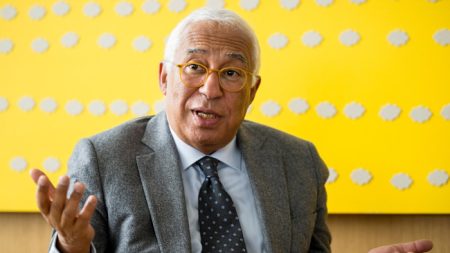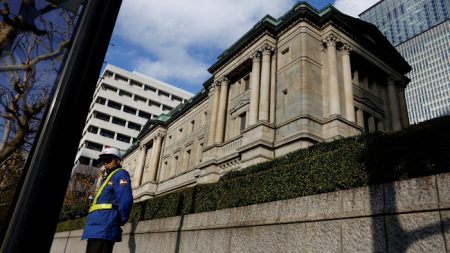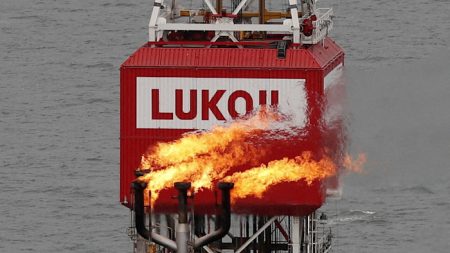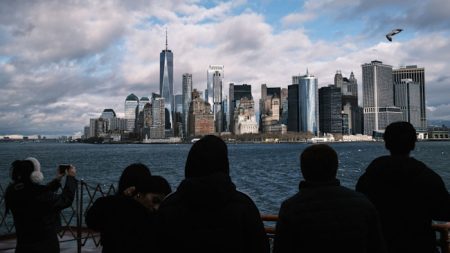Unlock the US Election Countdown newsletter for free
The stories that matter on money and politics in the race for the White House
Julian Assange has left the UK after striking a plea deal with US prosecutors to end the WikiLeaks founder’s legal saga over leaked documents and allow him to walk free after years of incarceration and confinement.
WikiLeaks said on X on Tuesday that Assange had been released from Belmarsh, a high-security prison in London, and had already flown out of the UK after being granted bail.
According to court filings, Assange has agreed with the US Department of Justice to plead guilty to one charge of conspiracy to obtain and disseminate classified information linked to US national defence.
The deal with the DoJ “has not yet been formally finalised”, WikiLeaks said, adding that more information would be provided as Assange “returns to Australia”.
The case involves what prosecutors have described as one of the biggest leaks of classified material in US history. Washington has long maintained that intelligence agents’ lives were put at risk because of the information disclosure — a claim Assange’s lawyers have disputed.
“Julian Assange is free,” WikiLeaks said, adding that he had “paid severely” for publishing stories of “government corruption and human rights abuses”.
He is scheduled to submit his plea on Wednesday morning in federal court in Saipan, which is part of the Northern Mariana Islands, a US commonwealth north of Guam. Sentencing is set to take place immediately after the plea submission. Assange has already served 62 months in a UK jail and prosecutors are not seeking additional imprisonment.
The Saipan court was chosen because Assange declined to carry out proceedings in the continental US. It is also closer to his home country of Australia, where he is expected to go after the proceedings conclude, according to a letter from prosecutors to the court.
“This is finally over,” Stella Assange, the wife of the WikiLeaks founder, told the BBC.
The agreement aims to resolve a prolonged battle between the DoJ and Assange, the controversial advocate for government transparency whose legal troubles have spanned multiple countries.
Australia’s Labor government has been privately lobbying Washington to find a solution to Assange’s case since it was elected in 2022. Prime Minister Anthony Albanese told the country’s parliament that Assange’s release was “a welcome development” but that proceedings “are crucial and they are delicate”.
“Regardless of the views that people have about Mr Assange’s activities, the case has dragged on for too long,” Albanese added. “There is nothing to be gained by his continued incarceration and we want him brought home to Australia.”
Assange founded WikiLeaks in 2006 as a platform to share leaked materials, shedding what he believed was a necessary light on secretive and powerful organisations, including governments and companies.
In 2010 the site published a cache of military and secret documents leaked by Chelsea Manning, the former US army intelligence analyst who, while serving in Iraq, copied hundreds of thousands of military incident logs and about 250,000 diplomatic cables.
WikiLeaks drew praise for revelations about US operations in countries such as Afghanistan and Iraq. But critics, including the US government, said it violated the law and put people’s safety at risk.
Sweden in 2010 issued an arrest warrant for Assange linked to a rape investigation, and he left that country for the UK. In 2012, following a ruling from the UK’s highest court to allow his extradition to Sweden, Ecuador granted Assange asylum after he entered its London embassy. In 2019, when Ecuador revoked Assange’s asylum status, London police dragged him out of the embassy to arrest him at the request of the DoJ.
US prosecutors sought to extradite Assange to face an indictment unsealed in 2019, charging him with conspiracy to commit computer intrusion over agreeing to break a password to a classified US government computer. He was later hit with additional espionage charges, including obtaining and disclosing national defence information.
Assange has been fighting efforts to bring him to the US to face the charges, arguing he faces a lifetime in prison if convicted. In May, the High Court in London gave him permission to appeal against an order allowing his extradition.
Manning was charged and convicted of espionage in connection with the WikiLeaks materials. Her 35-year prison sentence was commuted by Barack Obama shortly before he left the White House in 2017.
Additional reporting by Nic Fildes in Sydney
Read the full article here














